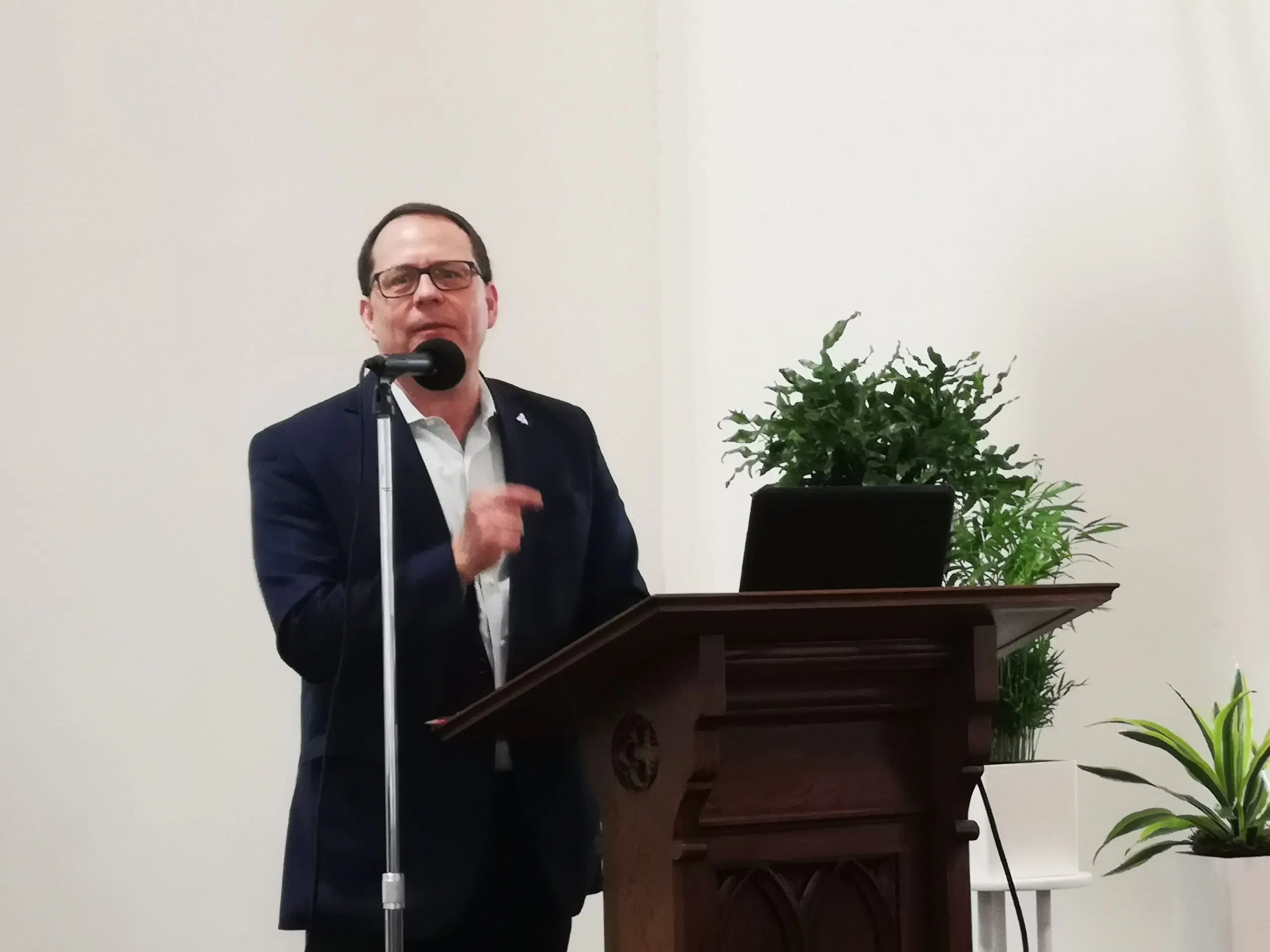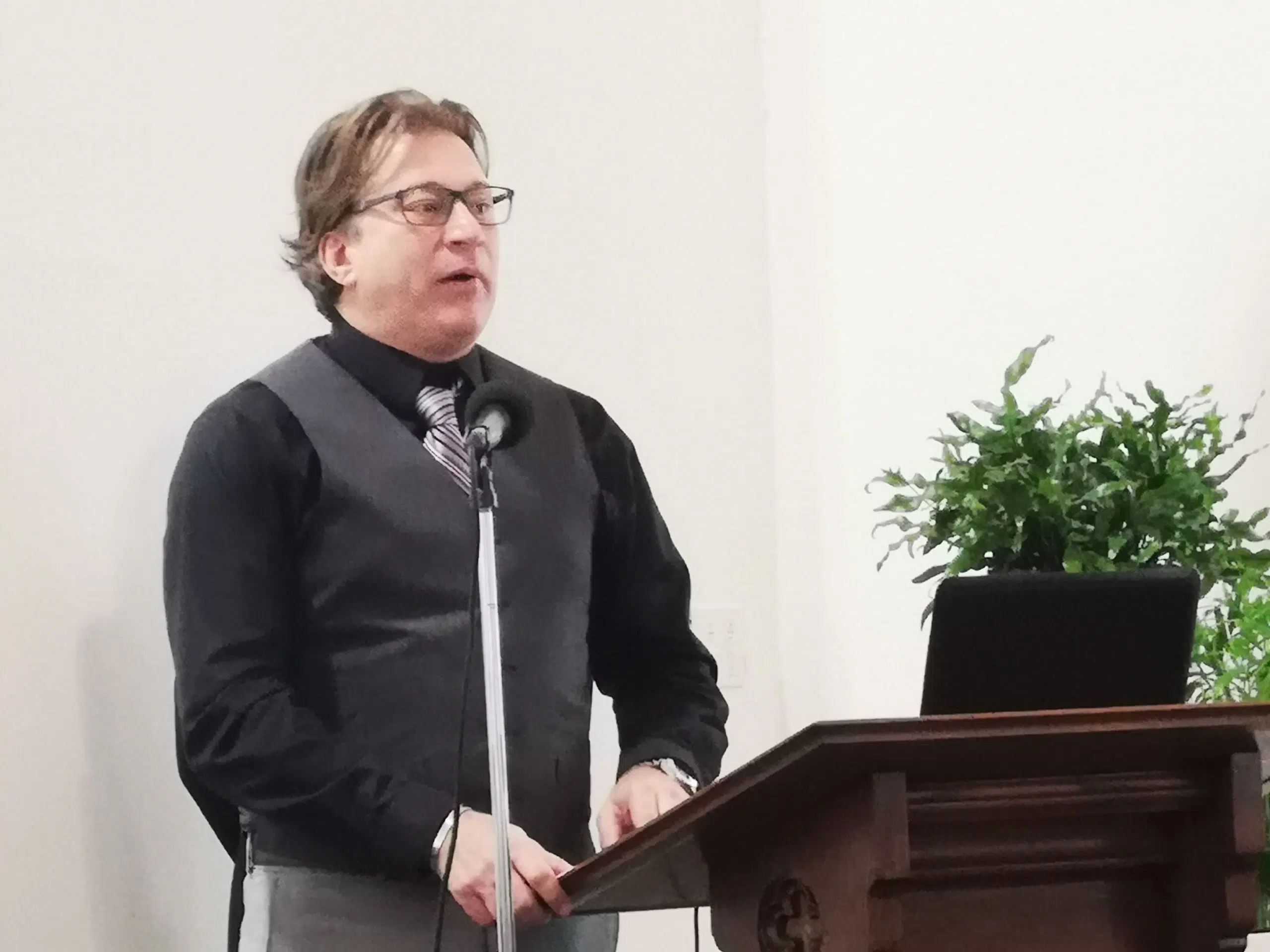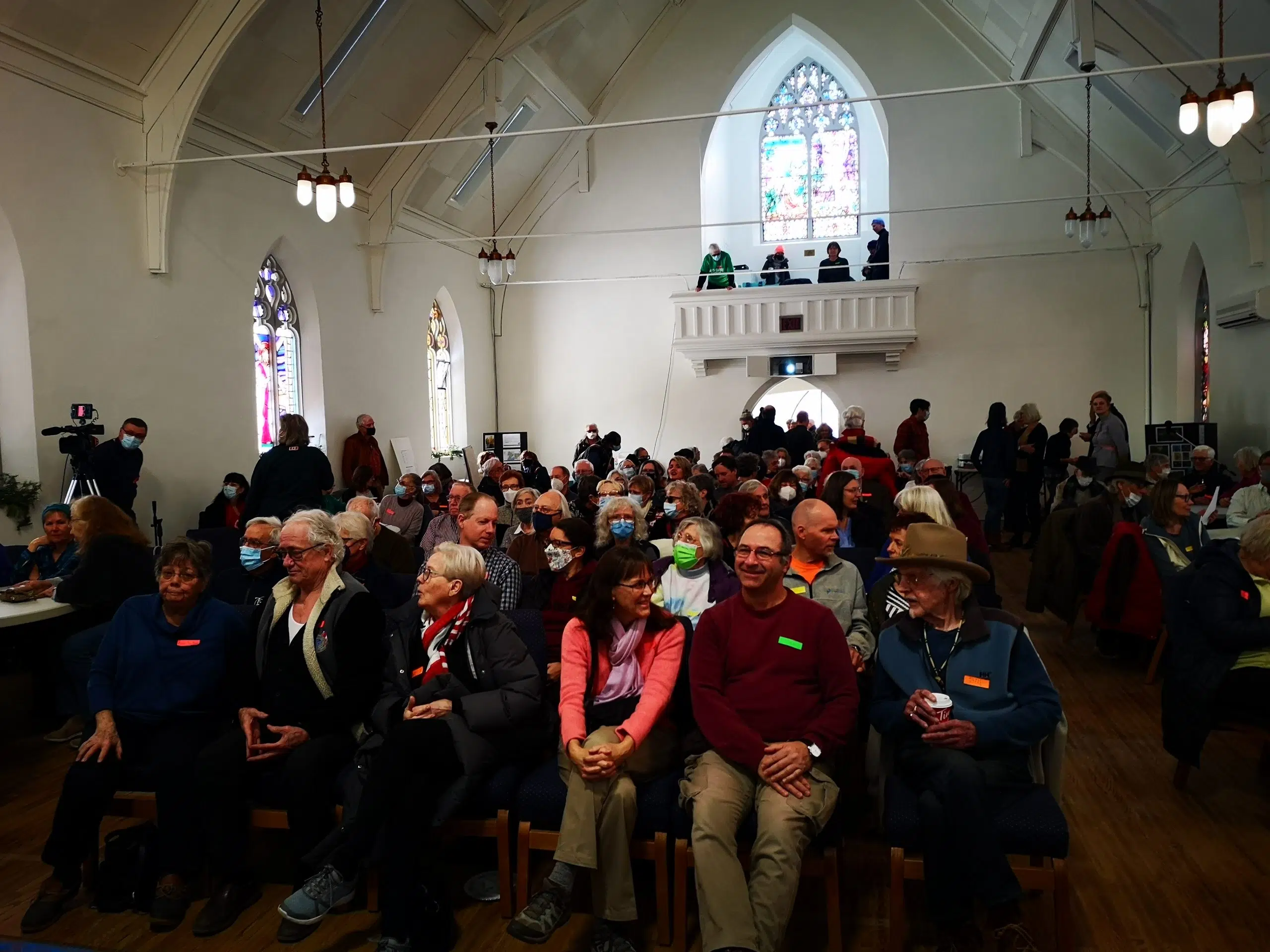St. Andrews Church in Picton was packed to the rafters during a Town Hall-style meeting held by the Ontario Green Party on Wednesday.
The meeting was so packed that extra chairs had to be set out, which were then filled and left some attendees with standing room only.
The meeting was held in opposition of Bill 23, More homes Built Faster Act, where the Ford Government attempted to encourage more housing development by removing land from the protected Greenbelt which includes farmland and formerly protected wetlands. The bill also included provisions that put restrictions on how conservation authorities could be consulted by municipalities and changed how wetlands are classified to remove protection from many of them. Bill 23 was pushed through quickly and has received severe backlash across Ontario, including significant public protests and local city councils speaking out against the bill officially.
Green Party leader Mike Schreiner spoke about the damaging effect of Bill 23 on local wetlands.

Ontario Green Party leader Mike Schreiner addresses a packed crowd at St. Andrew’s Church in Picton. Photo by Alan-Michael Steele
Schreiner spoke out harshly against building more homes in the greenbelt, both for the environmental impact and for the homes being too low density and far from any established communities with no jobs near them.
“Bill 23 is not a housing bill, it’s a bill that’s going to enable a handful of land developers to turn millions into billions at our expense,” Schreiner said. “I think that’s why so many of you are here today. Because the bottom line is, we have a housing crisis in Ontario. We need to build more homes. We need to build affordable communities for people want to live close to their family and close to where they want to work. They have a whole generation of young people wondering if they’ll ever have the dream of home ownership.”
Among the environmental impacts of the development, Schreiner cited both water pollution, as losing wetlands removes the environment’s ability to naturally process and purify water, and also increased flood damage, as the reduction of wetlands leaves waterways less able to handle floods that put people and property at risk.
Also speaking at the event was Chief Administrative Officer of Quinte Conservation Brad McNevin, who shared some of the ways that Bill 23 was making it harder for conservation authorities to provide their expertise and aid in decision making.

Quinte Conservation Chief Administrative Officer Brad McNevin explains to the crowd during the meeting the damaging effect Bill 23 has had on Conservation Authorities.
“Well, one of the primary impacts that we are feeling is the ability for us to enter into agreements with our municipalities to provide peer review services on their behalf during their development reviews for planning applications,” said McNevin. “We used to have agreements with our municipalities that would allow us to provide them those programs and services. The provincial government has written into the conservation authorities act that we are no longer allowed to do that under certain proscribed acts. So they’ve essentially taken us out of that ability”
McNevin says there are still some areas they can consult on, such as under the natural hazards act dealing with flooding and erosion, but most of their ability to consult has been taken away.
McNevin also spoke about the bill’s reclassification of provincially significant wetlands. Under the new criteria, 100 local wetlands lose the protection of being considered “provincially significant” which reduces their protection from development. He stressed that not only are these critical habitats for wildlife, but that developing them makes local rivers more prone to dangerous floods, and reduces local water quality in wells.
The event also featured a slideshow of photographs by local photographer Phil Norton, showcasing some of the natural spaces under threat.
After all three presentations, attendees were invited to ask questions of the presenters in a town hall fashion, and during that segment one asked Schreiner about his having been recently encouraged to run for leadership of the Ontario Liberal Party. Schreiner said that he hadn’t decided on a course of action yet.
Local Conservative MPP Todd Smith was invited, but declined to attend.






